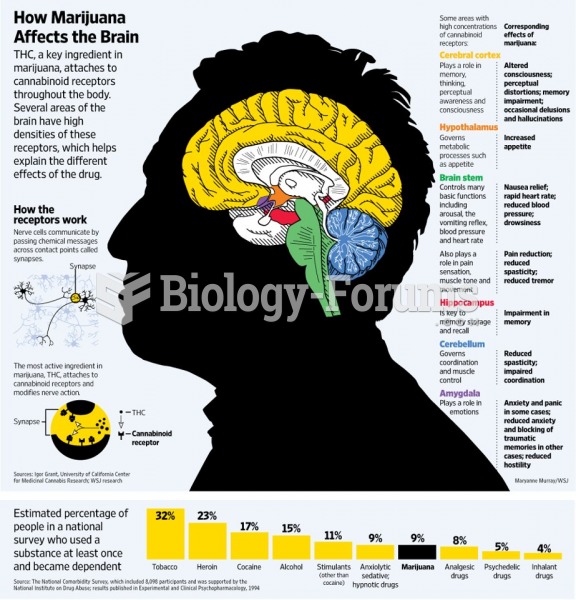|
|
|
The horizontal fraction bar was introduced by the Arabs.
Once thought to have neurofibromatosis, Joseph Merrick (also known as "the elephant man") is now, in retrospect, thought by clinical experts to have had Proteus syndrome. This endocrine disease causes continued and abnormal growth of the bones, muscles, skin, and so on and can become completely debilitating with severe deformities occurring anywhere on the body.
On average, the stomach produces 2 L of hydrochloric acid per day.
Vaccines cause herd immunity. If the majority of people in a community have been vaccinated against a disease, an unvaccinated person is less likely to get the disease since others are less likely to become sick from it and spread the disease.
After 5 years of being diagnosed with rheumatoid arthritis, one every three patients will no longer be able to work.







